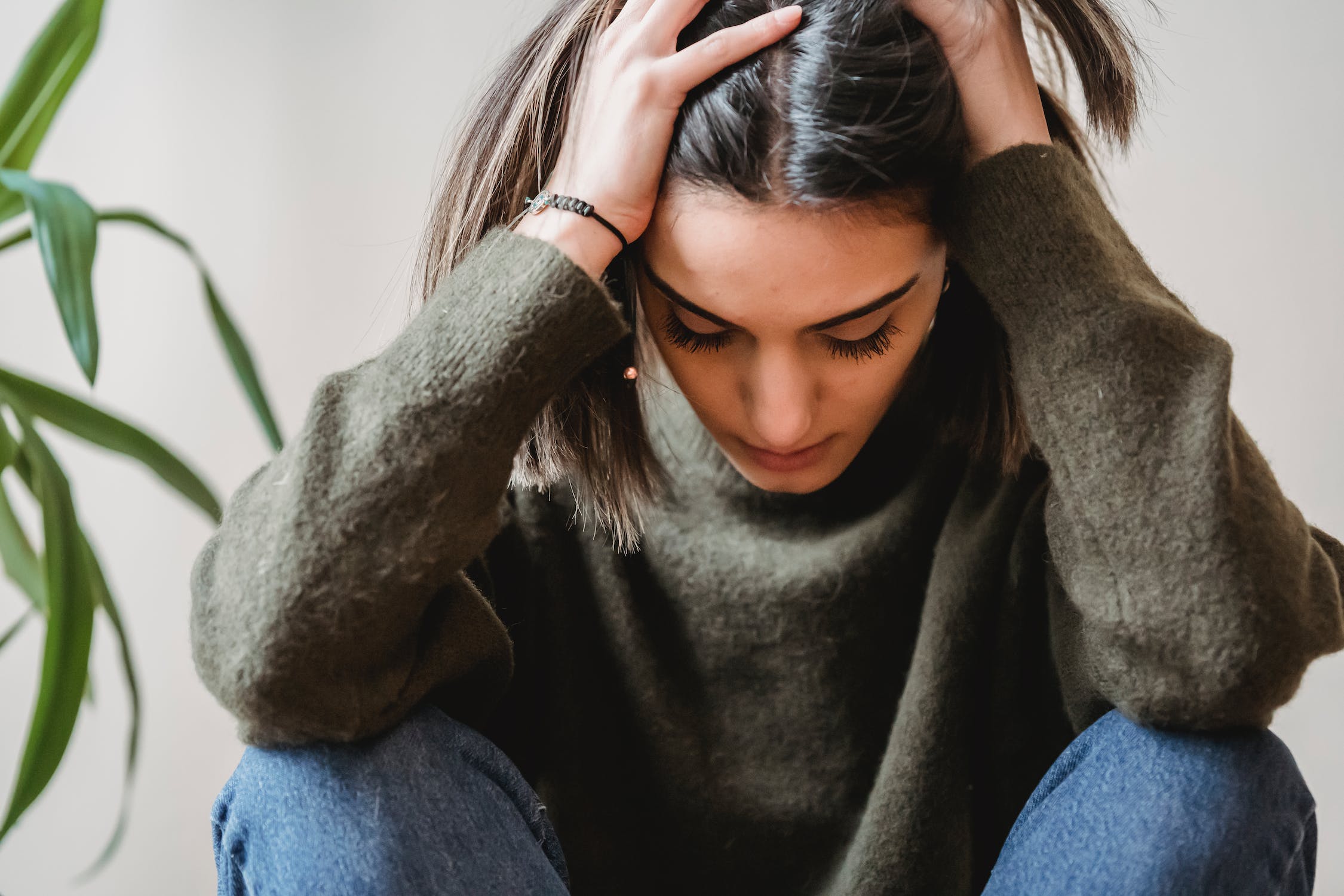Everyone experiences sadness and happiness. These are common emotions, but depression and anxiety are something more than what we call normal. These are debilitating conditions that interfere with daily routine life.
From a lingering low, disappointment, or desperate mood to feelings of uneasiness, apprehension, and fear, these conditions vary from person to person.
It’s normal to feel unhappy or hopeless, stressed or restless, or any combination of the above, but when these feelings happen quite often and disrupt your daily life, it leads to a disorder, depression, and anxiety.
The good news is that these are treatable. A combination of antidepressants and therapy with simple changes in your lifestyle can help ensure recovery. In some cases, these changes alone can make a difference. In others, you need to seek professional help.
It is always better to seek help rather than suffer alone – it’s not bravery; it’s utter foolishness. Not only will you destroy your life, but also the people close to you.
So, without further ado, let us get straight to the topic.
Quick-Fix
In the mental health arena, if you are looking for a quick fix, you must detach your emotional responses from eliciting thoughts to address them objectively.
The underlying goal is to drive your brain out of depressive thoughts, and the breakthrough treatment that works the best is the Chicago ketamine treatment. It helps to promote positive thought patterns by creating new ways of viewing and perceiving the things around you.
In addition to the medicaments, a good starting point is to bring small changes to your lifestyle. These changes are simple but powerful tools to reflect improvement. The process of forming healthy habits and making changes to your lifestyle can make a big difference in your mental well-being.
Here are some lifestyle changes that can help you cope with depression and anxiety:
- Get Active
When you are struggling with depression and anxiety, physical activity often seems like the last thing you want to do. But once you start, it positively influences your mood. Taking a start is important. Start slowly and gradually build it up to 30 minutes a day. Identify what you enjoy the most and then set reasonable and achievable goals.
Regular exercising plays a crucial role in not just uplifting your mood but also relieving stress. This is proved by research that regular physical activity eases the symptoms of depression and anxiety and helps you get back on track.
- Sleep Well
People suffering from depression and anxiety face serious sleep issues; some have insomnia, and others sleep too much. Both conditions are alarming and can have a huge impact on your mood. Establishing regular sleep patterns may help. Here are some of the recommendations for sleeping well:
- Set a schedule and stick to it. Go to bed and wake up at the same time every day.
- Make your room as sleep-friendly as possible. Cool, quiet and dark room is the best.
- Avoid going to bed too hungry or too full because that leads to discomfort and makes it difficult for you to drift off.
- Avoid alcohol and caffeine before bedtime.
- Power down your gadgets at least one hour before sleep.
- Eat Well
A healthy and well-balanced diet significantly affects your mental health. It improves concentration, gives you energy, and boosts your overall mood. Research shows that relying more on healthy foods, including fruits and vegetables, and limiting processed foods can help reduce the symptoms of depression and anxiety.
When depressed or stressed out, people tend to eat either too little or too much. Eating too little causes a feeling of weariness, whereas eating too much makes one sluggish and leads to weight gain. In either case, a poor diet only makes the situation worse.
Here are some simple and quick tips for mindful eating:
- If you don’t feel like doing anything, try making simple meals that don’t require too much energy and time to prepare.
- Limit fat and caffeine.
- Cut the sugary beverages, and drink plenty of water instead.
- Eat lean meat as a source of protein.
- Avoid ultra-processed foods.
- Eat fresh fruits and green leafy vegetables.
- Avoid frozen foods.
Keep track of your eating habits and make improvements over time.
- Avoid Alcohol
Can depression and anxiety lead to drinking alcohol, or conversely, can drinking alcohol leads to these mood disorders? It’s difficult to establish the link between the two. People find it easier to get away with sadness, emptiness, and hopelessness by using alcohol, not knowing that alcohol is a depressant.
It slows down the processes in your brain, making you feel relaxed, but these feelings wear off quickly, worsening the condition. You wake up feeling ill, anxious, stressed, and jittery, leading to more depression and anxiety. So, if you want to improve your mental balance naturally, stop or at least reduce drinking alcohol.
- Manage Your Stress
Stress affects everyone differently, and that’s normal. But high levels of stress overtime trigger feelings of depression and anxiety, making it difficult to handle tense situations. In that case, it’s important to learn stress management strategies to gain control and calmness.
Try to see stressors as a challenge instead of viewing them as problems. This way, you will be in a better position to deal effectively with them.
Here are some practical tips for coping with your stress:
- Identify situations that make you feel stressed.
- Choose a way to unwind, like reading a book, taking a bath, listening to music, watching your favorite TV show, etc.
- Surround yourself with supportive and positive people.
- Share responsibilities by delegating tasks to others.
- View the stressful situation from a positive perspective. Instead of focusing on what you can’t control, emphasize what you can.
- Communicate clearly if someone or something is bothering you.
- Try to create a balance between personal and professional life.
Final Thoughts
Depression and anxiety can be overwhelming if not treated on time. Dealing with depression and anxiety effectively means going beyond medications and therapy. Maintaining a healthy lifestyle by making small changes in your diet and daily routine can help bring improvements in your mental health and overall life, making you feel better every day.


